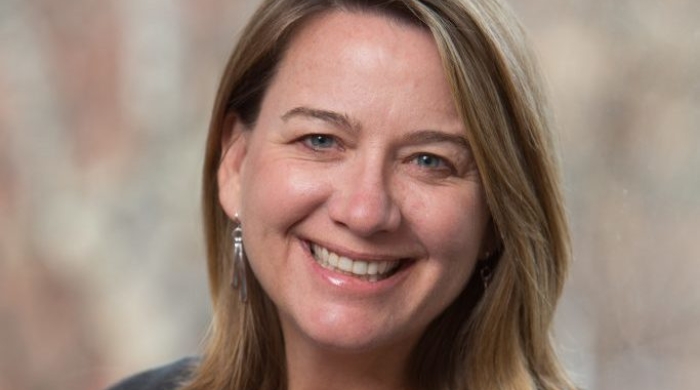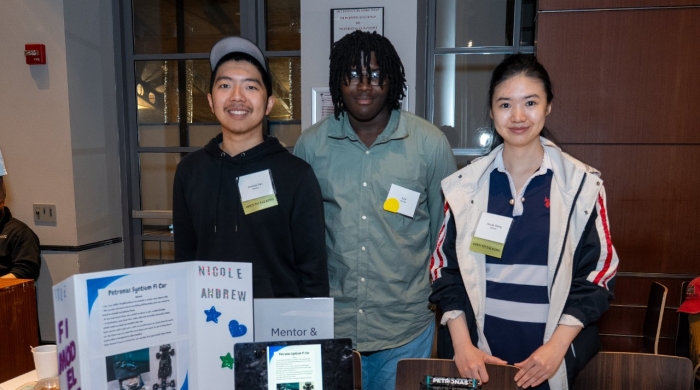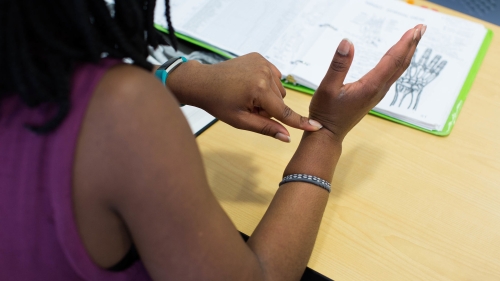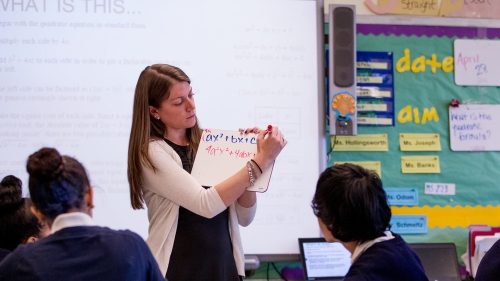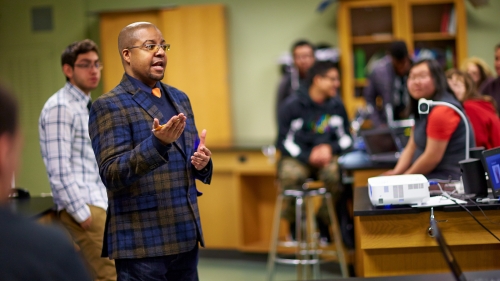Peer-based mentoring for neurodivergent students increases belonging and self-acceptance.
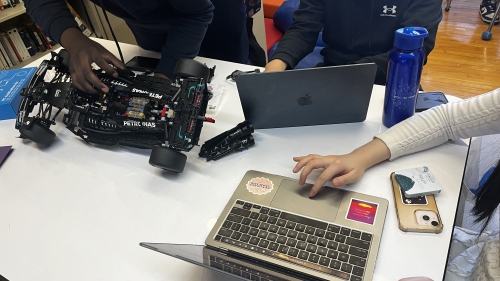
The Making Mentors program at NYU Steinhardt pairs autistic college students with autistic high school students in the NYC Public Schools’ Nest and Horizon programs to provide peer-based mentorship and support for navigating the educational journey. The program started as a pilot in the Nest Support Project at NYU Steinhardt, which trains, supports, and empowers public schools to implement a collaborative model of inclusive education.
Currently in its second year, Making Mentors is supported by a $1.29 million grant from the National Science Foundation to the Education Development Center (EDC) with NYU Steinhardt and the College of Staten Island as sub-awardees. Kristie Patten, professor of occupational therapy at Steinhardt and counselor to the NYU president, is a co-principal investigator on the grant and was recently interviewed by CBS New York about Making Mentors.
The idea for Making Mentors began out of research that shows that peer-to-peer interactions are most effective when both mentor and mentee share a similar neurotype; the gap with mentorship programs at most universities is that they are often based on neurotypical standards.
Dora D. Onwumere, MS, OTR/L, is a PhD student in Steinhardt’s Department of Occupational Therapy; she is using her work with Making Mentors as part of her dissertation on inclusive school and self-advocacy practices that can address that gap.
“Autistic students often face barriers to self-advocacy and social connection that impact academic, social, and career readiness,” says Onwumere. “As we learn more about how autistic brains process the world, it becomes clear how important it is to connect these students with peers who communicate in similar ways and understand their struggles and strengths—maybe not perfectly, but often more intuitively than neurotypical peers. These kinds of connections can be transformative, offering not just support, but a real sense of belonging.”
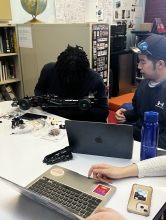
The high school students in Making Mentors come from a handful of New York City Public Schools, while the college students are enrolled at NYU or the College of Staten Island. Mentors commit to two years with the program and are paid for their participation; they are trained in peer mentoring and neurodiversity-affirming practices, which are co-led by autistic advocates and program staff.
“I was looking for work-study positions when I ran across the Making Mentors program, and it seemed like a good fit,” says Brian Myers, a master’s student in the Teaching Mathematics: Transformational Teaching, Grades 7–12 program. “I wasn’t diagnosed as autistic until a couple of years ago, and I had a lot of difficulties presented to me when I was growing up and as an undergrad. I learned a lot as I worked through those issues, and I feel like my experience could provide some guidance to my mentees through some similar challenges.”
Making Mentors includes both group activities and one-on-one meetings. They discuss large themes, such as understanding how autism may affect individuals in terms of socializing, time management, and self-advocacy—key areas for college readiness. They also work on makerspace projects together that were showcased this spring alongside their peers, other mentors, and friends and family.
“It’s a great opportunity for the mentees to talk about what they’re interested in and share what they’ve created with their families and mentees from the other high schools,” says Myers. One of his mentees worked on a 3D printed model of the USS Intrepid for the event.
Myers’ mentorship role is also helpful for his future career plans to be a high school teacher after he graduates from Steinhardt.
“Having the opportunity to work with high school students in a slightly more informal context will give me a different experience that will make me a better teacher,” says Myers. “I’ve been very impressed with my mentee’s maturity and how eager he is to learn and work. Making Mentors has been really rewarding for me.”
Qualitative findings so far reveal that participation in Making Mentors increases feelings of belonging, pride, and self-acceptance, with many mentors describing mentoring as a validating experience reinforcing their autistic identity.
“This kind of interest-based, autistic-led peer mentorship supports self-advocacy, social connection, and identity development among autistic students by helping to minimize differences in communication styles and create space for genuine connection,” says Onwumere. “This model has the potential to transform transition services, making them more inclusive, strengths-based, and grounded in lived experience.”
Related Articles
Steinhardt Vice Dean Wins Highest Honor in Occupational Therapy
Dr. Kristie Patten is being recognized with the American Occupational Therapy Association’s prestigious Eleanor Clarke Slagle Lectureship Award for her critical work in “Strength-Based and Client-Directed Occupational Therapy Practice.”
NYC Students Showcase STEM Projects in Celebration of National Science Foundation’s 75th Anniversary
NYU Steinhardt co-hosted an event recognizing NSF-funded projects supporting STEM learning and workforce development in NYC schools.
NYU Steinhardt Honors Mentor Teachers During Appreciation Week
Steinhardt's Office of School and Community Partnerships held Teacher Appreciation Day for nearly 70 NYC teachers.

